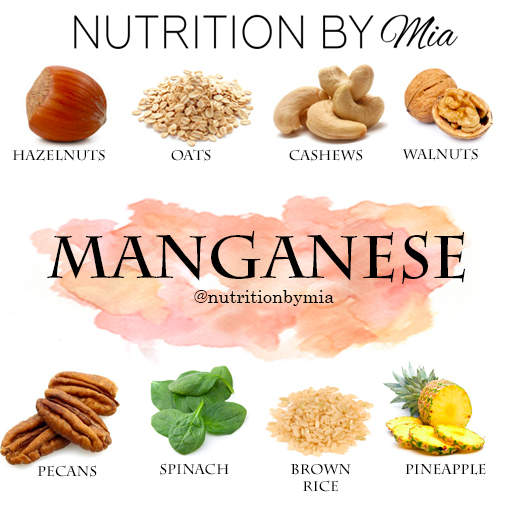 Manganese may be confused with magnesium when it comes to spelling but I assure you that their roles are distinct. Manganese is required by the body in trace amounts but essential for a range of functions that include aiding collagen production and preserving the health of our bones. When it comes to dietary sources, look to plant-based foods like nuts, legumes, green leafy vegetables, cereals and grains.
Manganese may be confused with magnesium when it comes to spelling but I assure you that their roles are distinct. Manganese is required by the body in trace amounts but essential for a range of functions that include aiding collagen production and preserving the health of our bones. When it comes to dietary sources, look to plant-based foods like nuts, legumes, green leafy vegetables, cereals and grains.
Functions of manganese:
Aids cartilage formation: Mangenese is a cofactor of enzymes known as glycosyltransferases involved in the cartilage formation pathway.
Bone production: Research sugguests that mangenase may help reduce bone loss by aiding calcium absorption.
Skin integrity and wound healing: Manganese is needed for the production of collagen. It is required for the activation of the prolidase enzyme which provides the amino acid proline for collagen formation.
Antioxidant power: Manganese is a component of the anixoxidant enzyme superoxidise dismutase which helps fight free radicals and promote healthy aging.
Signs of deficiency and toxicity:
Having a manganese deficiency may result in impaired growth, skeletal abnormalities, and altered metabolism. Overall, deficiency is not common and there is more concern with toxicity which can result in multiple neurologic problems. Toxicity is usually not caused by dietary sources but rather exposure to health hazards like manganese dust (particularly for welders). Incorporating plant-based foods into your diet will help you easily meet your manganese requirements.
How much do we need:
Adequate intake for male adults is 2.3 mg/day and for women 1.8 mg/day.












